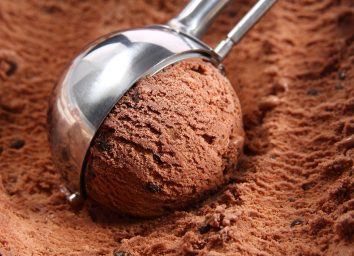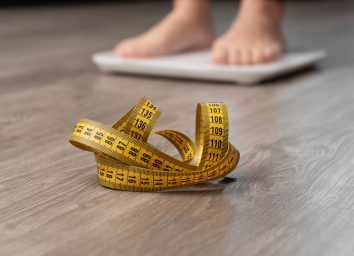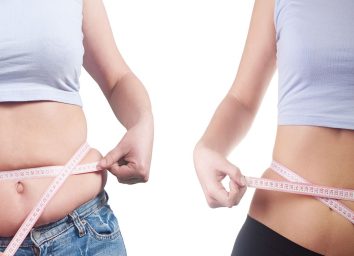9 Tips That Don't Work for Weight Loss, Say Dietitians
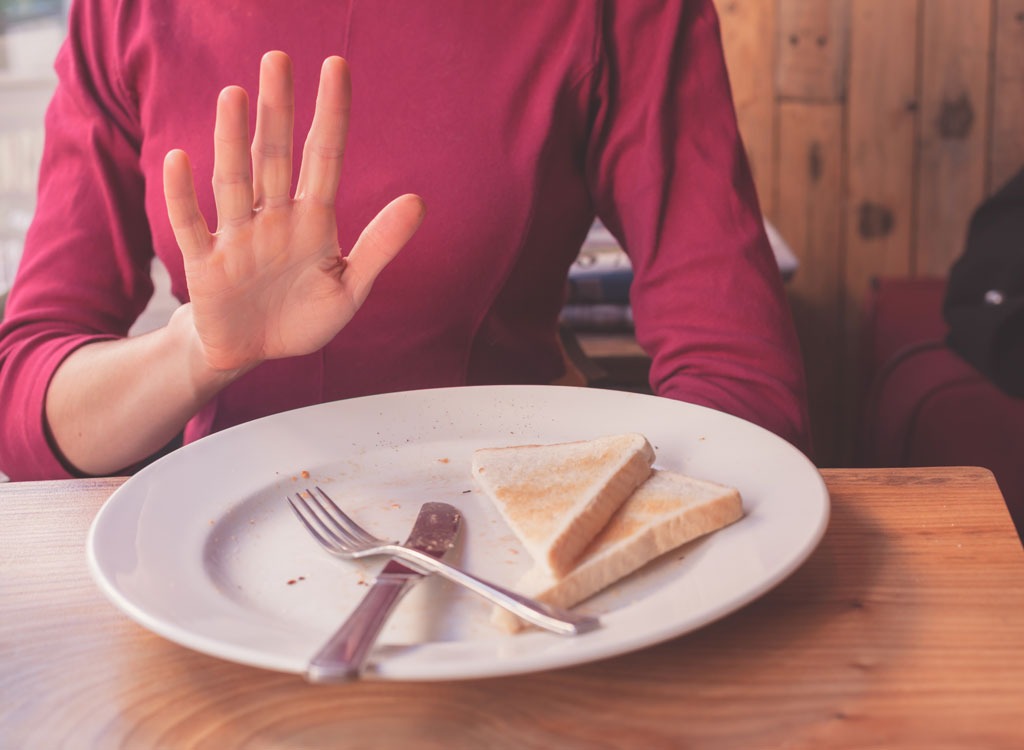
As a nutritionist, I've heard all the tips for weight loss—the good, the bad, and the totally off-the-wall. From the age-old cabbage soup diet to the more recent strategy of eating cotton balls to fill the stomach, there's no shortage of trendy ways to shed pounds–many of them are not only strange but also potentially harmful.
Even mainstream folk wisdom about how to lose weight can sometimes steer you in the wrong direction. So what do dietitians (the real weight loss experts) have to say about which tips are solid and which make them roll their eyes? I asked several registered dietitians to get their feedback. Here are nine weight loss tips they say to skip, and for more tips on how to lose weight, be sure to check out our list of 15 Underrated Weight Loss Tips That Actually Work.
"Make eating inconvenient."
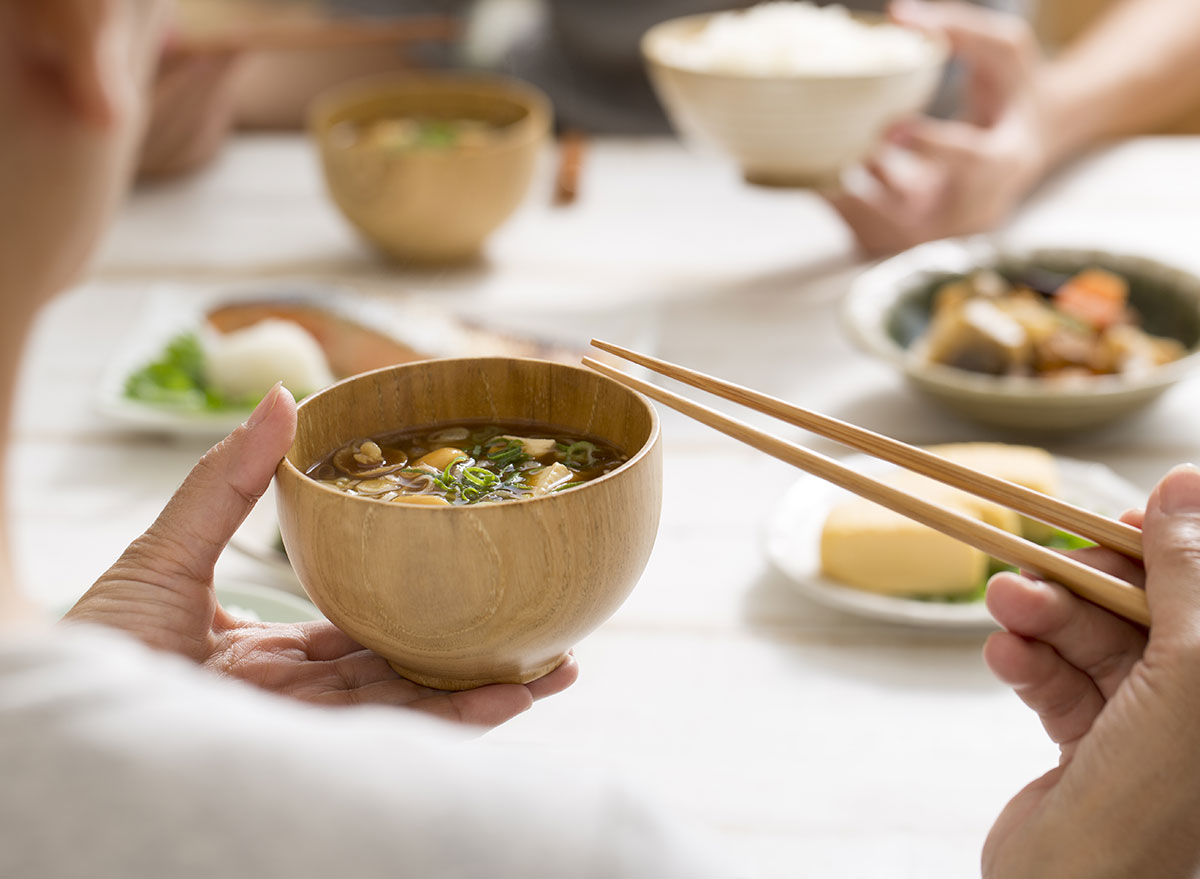
In theory, it kind of makes sense that putting obstacles in the way of your eating—like by using chopsticks instead of a fork or eating with your non-dominant hand—could help you eat less. But it's not exactly a practical solution to the issue of overeating.
"While you might find yourself eating slower, you can still finish a full meal," says Carrie Gabriel, MS, RD. "It is time-consuming, and if a person is busy, that could be frustrating."
Besides frustration, eating in awkward ways might just make you look silly. "Think of the mess a person would make if it was a food such as, say, steak or a burger, which need a hand or utensils to cut it into small pieces," says Gabriel.
Here are 17 Reasons You're Overeating (And How to Stop!)
"Put on tight clothes before you eat."
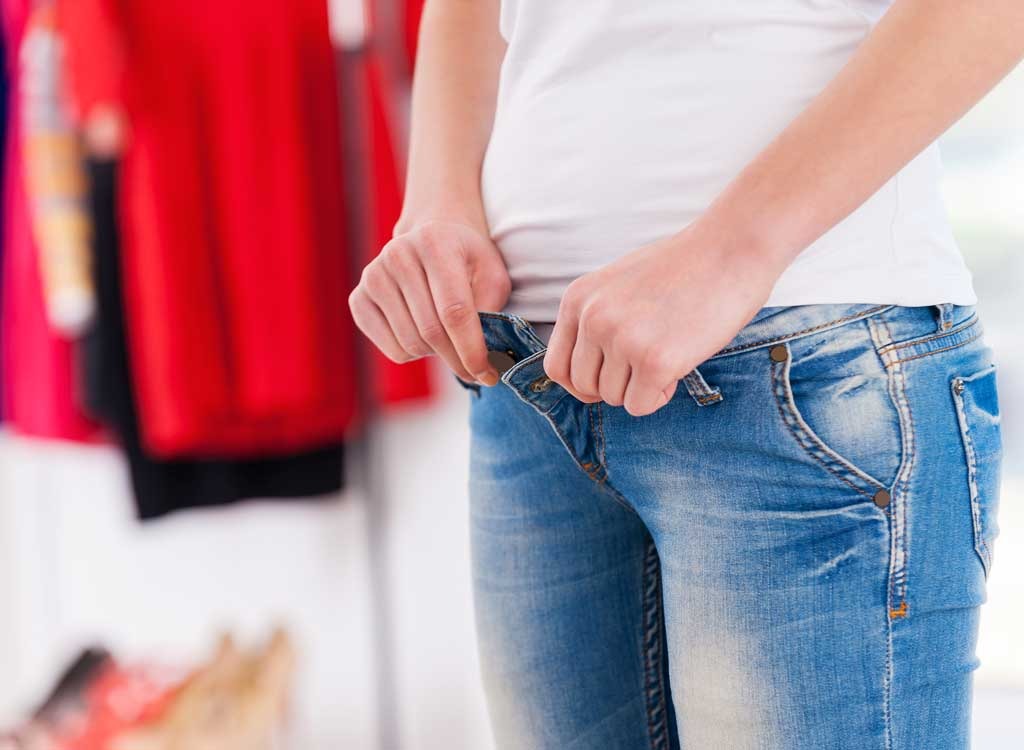
Another lifestyle change that'll only lead to discomfort? Changing your wardrobe at mealtimes. You may have heard the tip to don tight clothing before you eat in order to stay mindful of each mouthful. But keeping up a constant awareness of your weight at mealtimes creates negative self-talk—which you definitely don't need when you're trying to be healthy.
"There's nothing wrong with being motivated to realistically fit into your own clothing that you recently wore, but it's more important to dress the body you have and focus on your plate instead of your closet," says Bonnie Taub-Dix, RDN, creator of BetterThanDieting.com and author of Read It Before You Eat It—Taking You from Label to Table.
Here are 9 'Healthy' Habits That Make It Almost Impossible to Lose Weight.
"Replace meals with shakes."
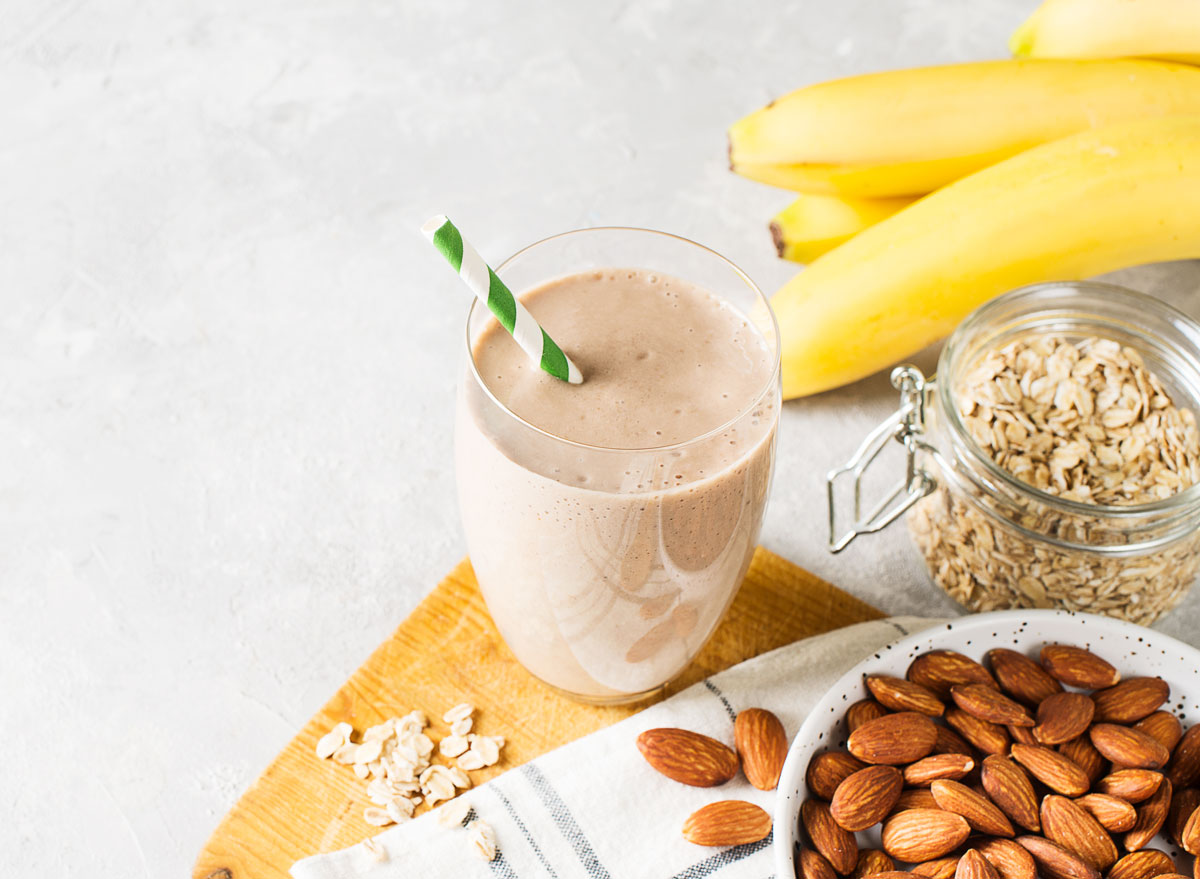
In the midst of a busy day, there's a time and a place for a probiotic-rich fruit and yogurt smoothie or protein shake instead of a sit-down lunch. But opting out of all meals in favor of weight loss shakes is likely to be a mere quick fix.
"While replacing food with a shake can be effective for some, there are important points to consider," says dietitian and personal trainer Anthony DiMarino, RD, CPT. "Meal replacement shakes are normally very low in calories and fiber and therefore do not keep people satisfied for long periods of time."
DiMarino adds that many meal replacement shakes tend to be high in sugar, which can spike blood sugar—a major drawback if you're living with diabetes or pre-diabetes.
Instead, make yourself one of these 100 Best No-Cook Recipes of All Time.
"Eat only one food."

Remember the grapefruit diet? Or the potato diet? Or any diet that told you to eat just one food? Monotrophic diets—those that advise sticking to a single food or food group—have been around for ages. The idea goes that you can only eat so much of any food before getting so bored you'll basically stop eating altogether.
It doesn't sound like a recipe for a healthy relationship to food, says Gabriel. And it sure doesn't sound like fun!
"This pushes a person into eating disorder territory, in my opinion," she says.
Meanwhile, if you go too long without a varied diet, you're more likely to end up in the hospital than in a bikini competition.
"Eating only one type of food for an extended time period will make you deficient in other nutrients your body needs. Eventually, this could result in life-threatening illnesses," Gabriel says.
Here are 7 "Diet Hacks" That Don't Actually Work.
"Don't eat carbs."
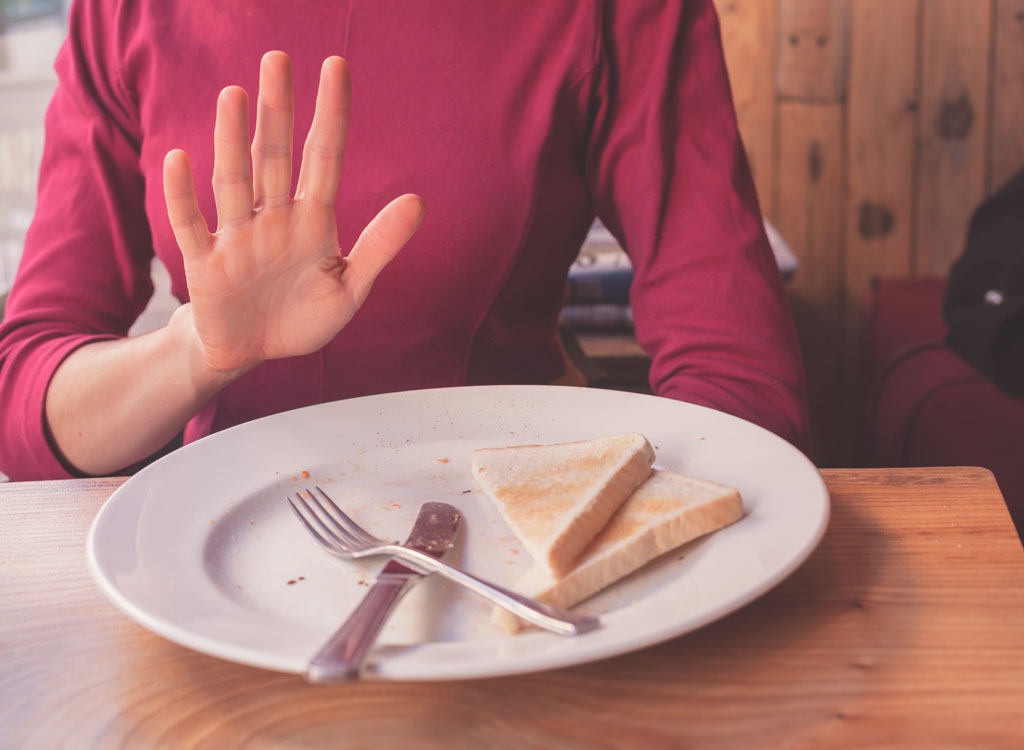
No one can deny the weight loss-boosting effects of cutting back on carbs on a diet like keto or Atkins. But for many people, opting out of carbohydrates completely can become a too-drastic elimination—one that might not even work in the long term.
"The research suggests you will undoubtedly lose weight by cutting out an entire food group," says DiMarino. "But at what cost? Depriving yourself from carbohydrates (your main energy source) will ultimately reduce your quality of life over time. Low carb diets can cause you to experience hunger, irritability, fatigue, mood swings, constipation, headaches, and brain fog."
If you're considering ditching carbs for weight loss, it's best to talk to your doctor or dietitian before diving in—as well as to be aware of the risks.
"A low-carb diet can put you at risk for kidney stones, osteoporosis, and even gout," DiMarino says.
"Chew each bite dozens of times."
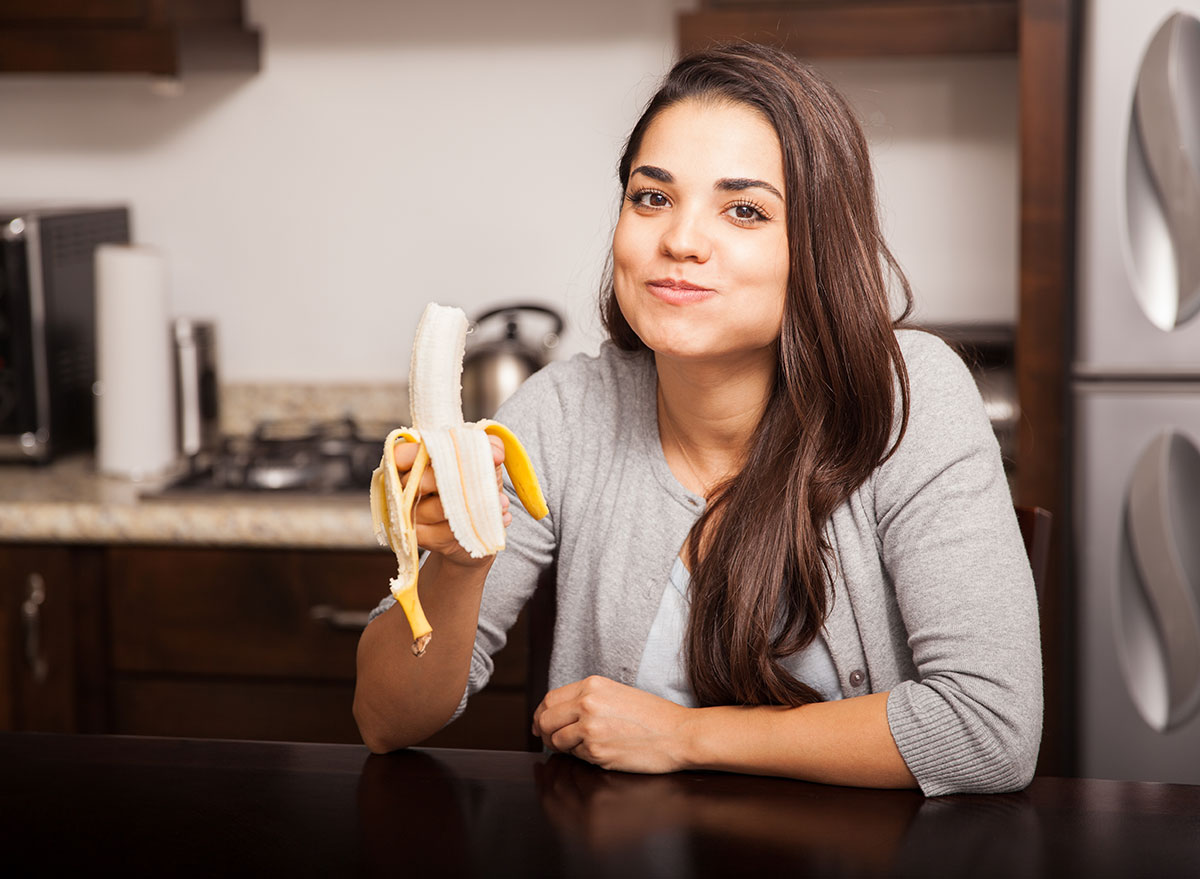
This one's another throwback: Simply chew your food into a liquid pulp and watch the pounds fly off! The art of "Fletcherism" had its heyday in the early 1900s when food faddist Horace Fletcher (the early 20th-century version of an Instagram influencer) advised his adherents to chew every bite until liquefied to boost weight loss.
To this day, you'll sometimes see this tip circling back around. And, in truth, it's not a bad idea to chew thoroughly—but it's no magic bullet for weight loss.
"While chewing your food multiple times before swallowing is ideal and aids in proper digestion, and eating more slowly can make you conscious of becoming fuller more quickly, this can also be time-consuming," says Gabriel. "Depending on the food and depending on a person's relationship with food, it can make them obsess over their food and not actually enjoy it."
For more healthy eating tips, check out our list of 9 Best Healthy Eating Hacks for Weight Loss.
"Cut out fat."
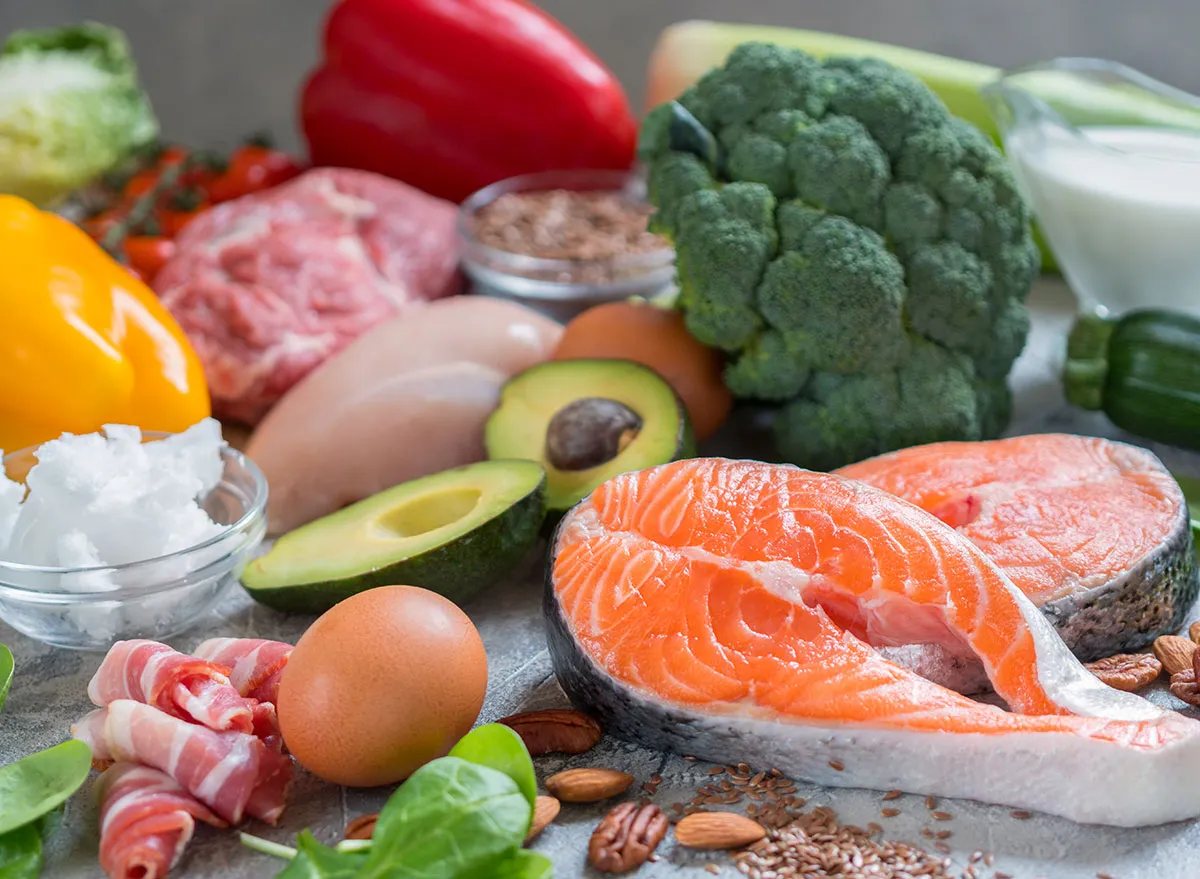
If there was one prevailing weight loss mantra of the 1980s and '90s, it was that eating fat made people fat. Non-fat potato chips, salad dressings, and even (ew) ice creams became staples of "healthy" households. Now, however, research has shown that the right kinds of fats are an important part of a healthy diet—even a diet for weight loss!
"Fat is an essential nutrient that not only helps us absorb fat-soluble vitamins and essential nutrients, but it also helps us feel full and satisfied to help prevent overeating," says Taub-Dix. "The key when trying to reduce your weight or eat healthfully in general (even if your weight is not an issue for you), is to choose the right fats."
Monounsaturated and polyunsaturated fats are the kind to enjoy regularly in your diet. Taub-Dix recommends including plenty of nuts, avocado, and oils like avocado oil or olive oil.
Here are 20 Common Fatty Foods That Won't Make You Fat.
"Don't ever indulge."
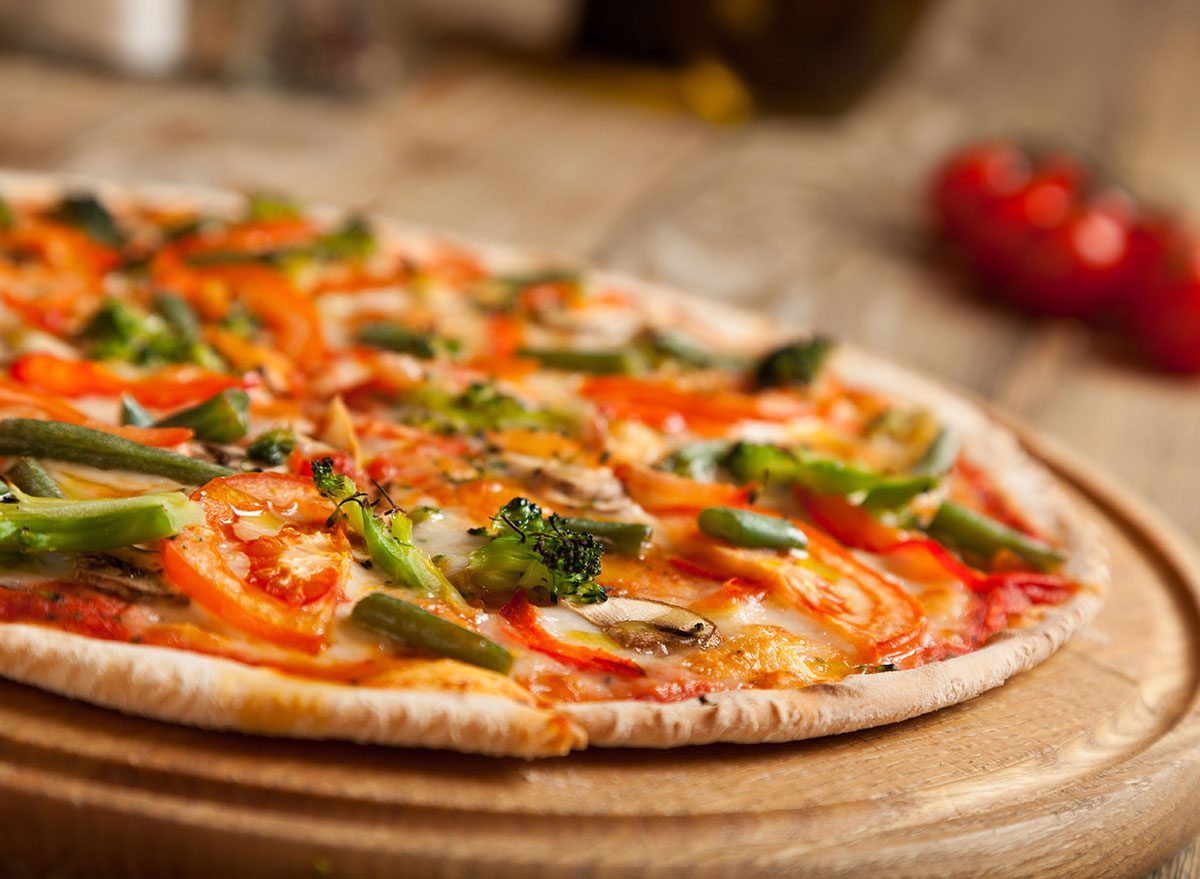
Popular weight loss advice is guilty of plenty of untruths—chief among them the idea that, when trying to reach a healthy weight, you can't indulge in any of your favorite foods. Make one "mistake" by having a donut or pizza, goes the thinking, and you've done irreversible damage.
Dietitians know this is far from true.
"Why should you be denied of your favorite foods just because you're trying to lose weight?" says Taub-Dix. "If you don't eat any of those indulgent foods you love, there's a good chance that you'll wait until you're 'off' your diet to enjoy them. That's when those foods usually come back with a vengeance—in unreasonable portion sizes and too often."
Rather than thinking of your weight loss effort as a short window of restricting the joy out of food, you'll benefit far more in the long-term by (sometimes) including best-loved menu items.
"A weight loss plan that will be sustained should always include foods you love because, after all, this should be a diet you incorporate into your life, not a diet you change your life for temporarily," Taub-Dix says.
"Just cut calories."
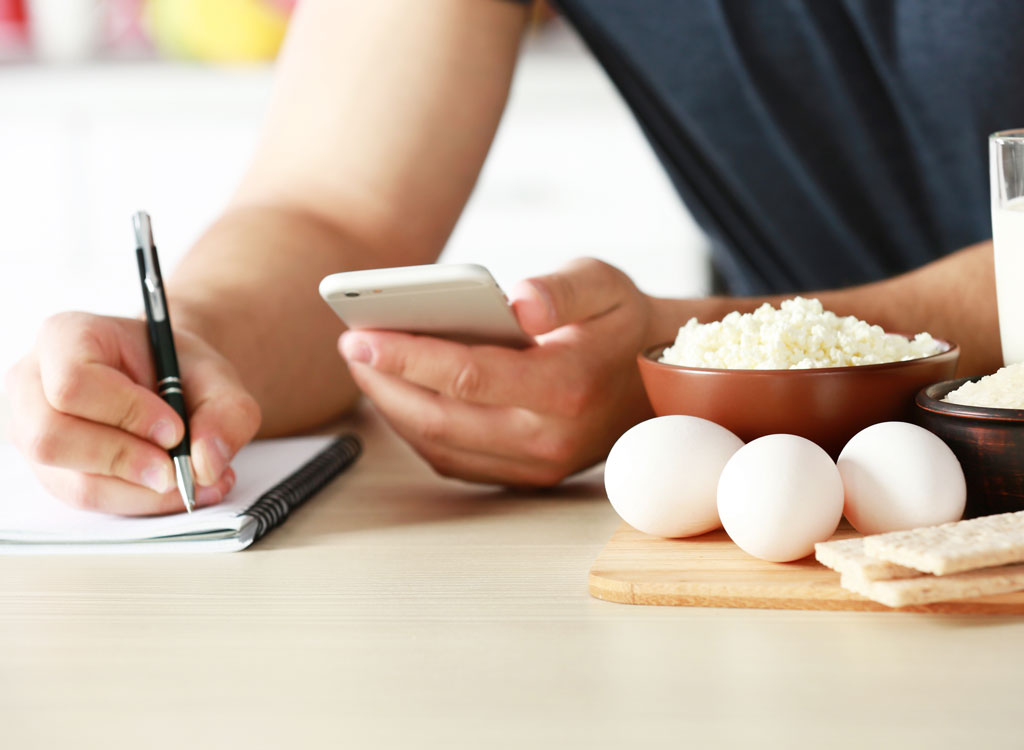
When it comes to weight loss, we all know the basic concept of calories in versus calories out. It seems like losing weight should be so simple—yet many dieters find that just eating less somehow doesn't budge the scale. Turns out, multiple factors are often at work in your body to complicate this equation.
"While the prevailing evidence suggests weight loss can occur as long as there is a calorie deficit, the kinds of calories do matter," DiMarino says. "Human bodies are complex biological systems that process foods with different micronutrient makeups in completely different ways. Physiologic and hormonal changes occur in response to the foods we eat."
If you've found you're not making progress by sticking to a calorie target, don't despair! Fortunately, you can experiment (especially with a dietitian's guidance) with what types of foods and food combinations you consume. One possibility: work on incorporating higher-fiber, nutrient-dense foods as often as possible.
"Choosing to eat less processed, whole foods improve overall satiety (thus limiting overeating), provides steady energy all day long, and improves body composition over time," DiMarino says.
